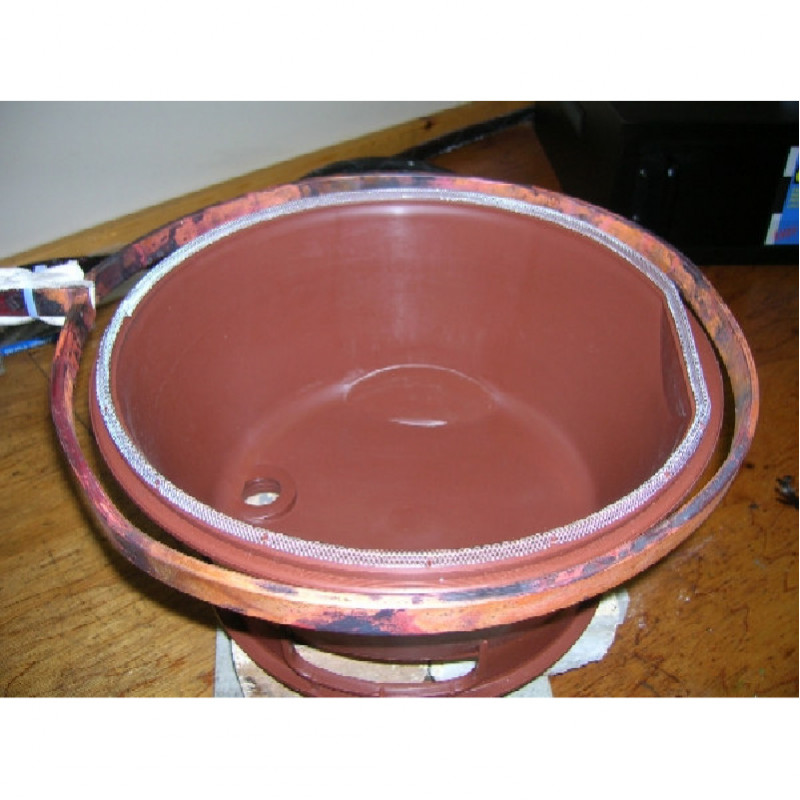

Category


Photos are for informational purposes only. View product specification
please use latin characters
Objective: Bond an aluminium mesh to a plastic beer keg.
Frequency: 207 kHz
Material: Aluminium mesh, plastic keg 320 mm (12.5”) ID.
Temperature: 482 °F (250 °C)
A single-turn solenoid coil is placed around the assembled beer keg and heated for 35 seconds as the keg is rotated. Pressure is applied with a press on the top rim whilst the keg is rotating, forming a seal between the aluminium mesh and the two halves of the beer keg.
Are you interested in this product? Do you need additional information or individual pricing?
Objective: Bond an aluminium mesh to a plastic beer keg.
Frequency: 207 kHz
Material: Aluminium mesh, plastic keg 320 mm (12.5”) ID.
Temperature: 482 °F (250 °C)
A single-turn solenoid coil is placed around the assembled beer keg and heated for 35 seconds as the keg is rotated. Pressure is applied with a press on the top rim whilst the keg is rotating, forming a seal between the aluminium mesh and the two halves of the beer keg.
Your review appreciation cannot be sent
Report comment
Report sent
Your report cannot be sent
Write your review
Review sent
Your review cannot be sent
